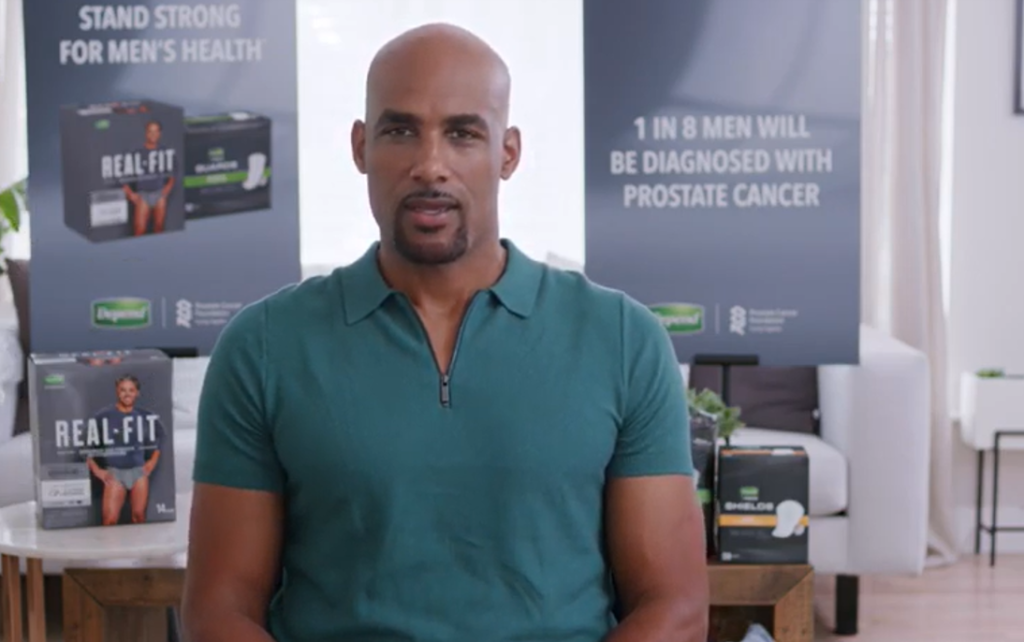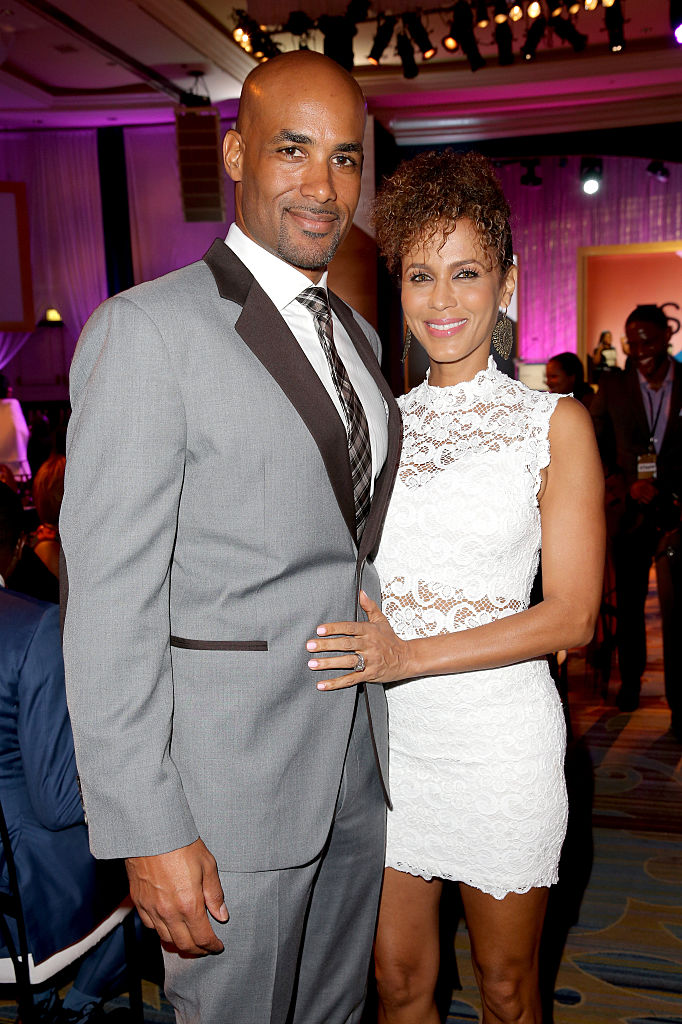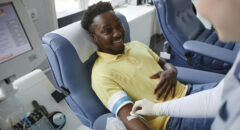
Boris Kodjoe, the handsome actor, husband and father has been a champion his whole life. He's been a champion for marriage by being married to his wife Nicole Ari Parker for over 15 years and a champion for his daughter who suffers from Spina Bifida. And now, at age 50, he's being a champion for prostate cancer.
Boris Kodjoe teams up with Depend® for the launch of its Stand Strong for Men's Health™ initiative to celebrate men taking charge of their health and destigmatize incontinence. Watching a close friend and mentor battle prostate cancer inspired Boris to start honest conversations around issues like incontinence, a leading side effect of the disease.
“A lot of men are affected. A lot of men in my circle,” he says. “I want to use my platform to speak on these things because it’s important that we remove the stigma that’s often attached to diseases like prostate cancer where men just refuse to talk about it. The problem is that if we don’t talk about it, we don’t acquire information. If we don’t educate ourselves, the numbers will just continue to go up.”
And Boris is not wrong. African American men are at an increased risk for developing prostate cancer over white men and other men of color. One in seven African American men will develop prostate cancer in his lifetime. Overall, African American men are 1.8 times more likely to be diagnosed with—and 2.2 times more likely to die from—prostate cancer than white men. African American men are also slightly more likely than white men to be diagnosed with advanced disease.

While there is no clear reason for these differences, several factors can impact cancer risk and outcomes in the African American community. Because of historical context, race in the United States is correlated with socioeconomic status, and lower socioeconomic status is correlated with increased cancer risk and poorer outcomes. African American men may also be harmed by racial bias in preventive care, as they are less likely than white men to be offered the option of having a PSA test, and are more likely than white men to be told that the benefits of the PSA test are uncertain. Additionally, a recent study found that African American men diagnosed with early-stage prostate cancer were less likely than white men to receive any type of treatment for that cancer.
But, the racial divide for prostate cancer outcomes is shrinking. Overall, the five-year relative survival rate for African American men diagnosed with prostate cancer is 97%, which means that if an African American man is diagnosed with prostate cancer today, at any stage, there is a 97% chance he will be alive in five years. When the disease is caught early, this rate increases to nearly 100%.
One way to help is to support Depend and the Prostate Cancer Foundation in transforming the future of men’s health.
“These are some of the things that we have to address, especially as Black men and men who in our communities are considered pillars of strength,” he says. “Sometimes when we talk about these things and we’re vulnerable, we have the fear of being looked at as weak. We have to overcome that. We have to talk to our healthcare providers, our doctors, and make sure that we get the appropriate testing done.”
At a time when the pandemic has put the spotlight on health disparities in the African American community, the star is hopeful that his efforts will help start necessary conversations to save lives, especially since prostate cancer has been found to be more aggressive in Black men.

“We just have to start talking about these things,” Kodjoe says. “We can’t shy away from these topics and continue to perpetuate these stigmas because our lives are in danger. Our lives are on the line.”








